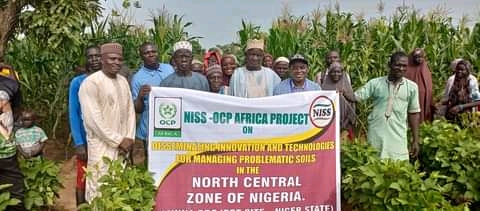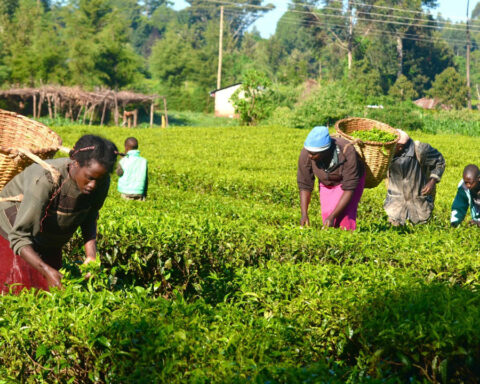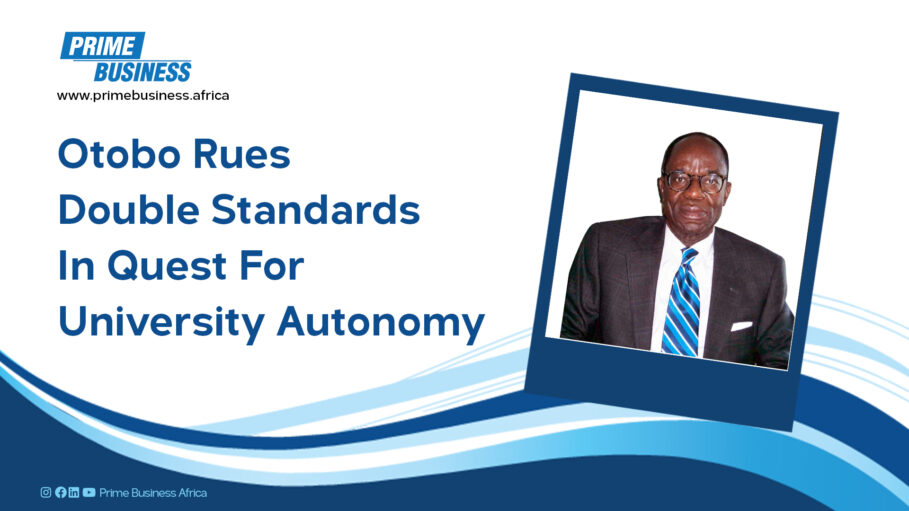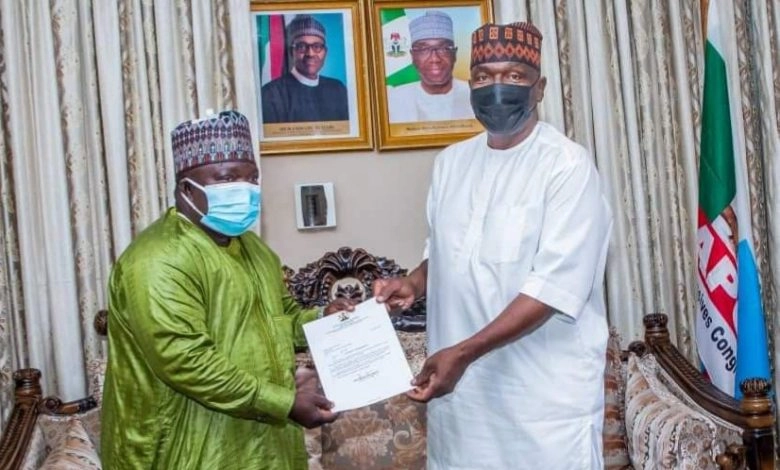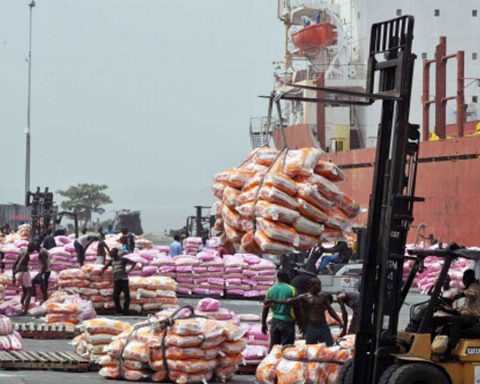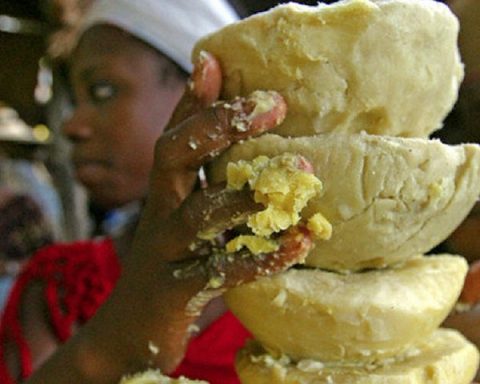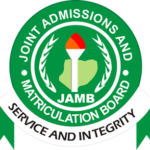Nigeria Institute of Soil Science (NISS) in partnership with OCP Africa has organized training on sustainable farm practices for over seventy local farmers in Minna, Niger State for North Central zone.
The training was to empower farmers with knowledge on how to improve soil quality and sustainability to boost food production.
Join our WhatsApp ChannelThe sensitization training which was carried out on the farm Project Sites located at Gidan Mangoro Village, Minna, had the theme: “Disseminating Innovation and Technologies for Managing Problematic Soils.”
NISS Coordinator, North Central Zone, Prof. Akim Osunde, stated that the exercise was to create an interactive forum between NISS researchers and the community farmers while the plants are still in the vegetative stage of growth.
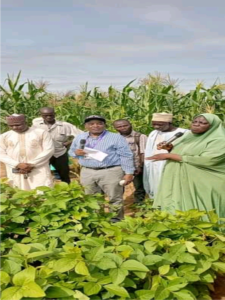
NISS Zonal coordinator, North Central Zone, Prof. Akim Osunde (middle) with farmers at Minna, during training. Photo credit: Stephen Shekwaga
He said, “It is a form of capacity building for the farmers on all facets of the agro-technologies being introduced to them.”
The project according to the zonal coordinator is a collaboration between OCP Africa and NISS, aimed a spreading innovation and technologies about managing problematic soils in Nigeria for improved soil yield.
“This is to arrest the issue of low quality soils in the country attributed to inappropriate soil use and practices,”Osunde stated.
OCP Africa is a Moroccan Fertilizer Conglomerate incorporated in Nigeria.
He disclosed that the project is primarily funded by OCP Africa while NISS through its personnel experts is responsible for executing the project.
Osunde who is a Fellow of the Soil Science Society of Nigeria (FSSSN) and a Registered Soil Scientist (RSS), noted that the overall goal of the NISS – OCP AFRICA project was to improve soil quality and sustainability, and increase agricultural productivity through effective and sustainable management of problematic soils such as acid soils which according to him, dominates more than 70% of arable lands in Nigeria.
He said, “For effective and sustainable management, acid soils will require soil amendments (Agricultural lime), organic manure application and proper good agricultural practices (quality seeds, appropriate plant spacing, timely weeding etc,) for optimum crop growth and yield.”
Osunde noted that maize and soybean are the most commonly grown grain crops in the North Central Zone of Nigeria, hence their choice of the crops as test crops for the exercise.
He stated that two zones – North Central and South East Zones, and two states per zone were selected to commence the zonal pilot project.
In the North-Central, the project is currently being carried out in two pilot states: Niger and Kwara.
District Head, Gidan Mangoro Village, Alh. Mohammed Sani Adamu who spoke on behalf of community farmers present at the event, expressed appreciation to the NISS for finding the community worthy to site the project farms for the exercise, noting that the training would enhance food productivity in the community.
Adamu enjoined all the farmers in the community to adhere to all the innovative technologies demonstrated by the NISS team in order to boost food production in the community and the state at large.
He appealed to the NISS and other governmental agencies to remember the community in all their agricultural related programmes.


